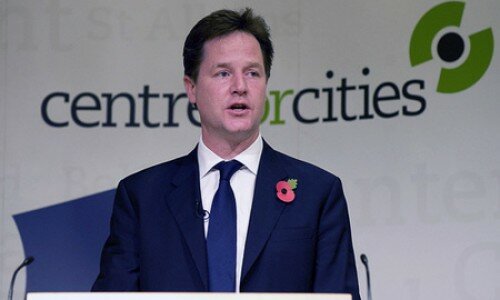
Sheffield city region deal suggests Greater Birmingham needs metro mayor for devo max
Sheffield has become the second English city to strike a post-Scottish independence referendum devolution deal with the Government – and the terms of the agreement could provide a valuable lesson for Greater Birmingham’s ambitions, writes Paul Dale.
Although the Yorkshire city is to get a welcome measure of freedom from Whitehall, it will be denied the wide-ranging powers granted to Greater Manchester. And the reason behind Sheffield’s mini rather than max devolution appears to be a reluctance to countenance having a metro mayor.
The mayor issue is a major sticking point for the proposed Greater Birmingham combined authority. Put simply, most West Midlands council leaders are vehemently against the mayoral model.
It is reasonable to assume, therefore, that a Greater Birmingham without a metro mayor would be granted devolution on a similar basis to Sheffield rather than Greater Manchester. The Government has made it clear it will not impose mayors against the will of council leaders, whilst it appears equally clear that the Black Country councils, Solihull, Coventry and Birmingham are highly unlikely in the short term to voluntarily move to a metro mayor.
The Sheffield city region will be given greater control over transport, skills, housing and business support, leading to the introduction of ‘oyster-style’ travel cards. Local councils and businesses will have control over the majority of the skills budget for the area for the first time.
Described as a “historic move” by Sheffield MP and deputy prime minister Nick Clegg, the deal means that Sheffield city region will be responsible for the majority of the Adult Skills Budget, working with the Skills Funding Agency and the Department for Work and Pensions to build a new skills system.
However, the scale of powers and budgets being handed to Sheffield is nowhere near as comprehensive as the announced last month.
, the Sheffield city region is not being handed new powers or direct control over substantial revenue streams or the critical drivers of growth on anything like the same scale as Greater Manchester.
There is no Sheffield equivalent of the reformed ‘Earnback’ infrastructure investment arrangements, or devolved transport budgets, or the housing investment fund that Greater Manchester stands to benefit from.
The Greater Manchester deal only become possible when the 10 combined authority councils dropped their opposition to an elected mayor. They were effectively told by Chancellor George Osborne and Treasury officials that the mayor was a ‘non-negotiable’ part of full devolution.
Mr Osborne has made it clear that he regards elected mayors as an essential add-on to improve governance standards if substantial new strategic planning and economic development powers are to be transferred to the city-region level.
The agreement signed by Sheffield councils and the Government states that the potential for further devolution depends on the city region considering “different options for improving local governance and accountability”.
It is generally accepted that devolution for the Greater Birmingham area is a long way away and will depend on councils agreeing to form a combined authority. Talks are continuing in an effort to bring Coventry and Solihull on board with Birmingham and the Black Country councils.
All of the councils in the Greater Birmingham area have in the past opposed elected mayors. Birmingham and Coventry electors voted against in referendums. The other councils have made it perfectly clear that they do not see the need for a metro mayor.
It seems unlikely that the metro mayor issue will simply disappear after the General Election, whichever party or parties win since Labour leader Ed Miliband has said he is in favour of the idea.
Similar Articles
Will the train take the brand strain? 0
It’s difficult to know which is more complex. Sorting out skills, negotiating Brexit or coming
Boardrooms should focus on the social line as well as bottom line 0
Earlier today, Greater Birmingham Chambers of Commerce released its latest Economic Review which underlined the
Skills shortages biggest obstacle to Birmingham’s growth 0
Skills shortages are the biggest obstacle to economic growth in Birmingham, according to a report
Two Mirror images of Birmingham’s housing 0
It was Aristotle who supposedly reckoned that one swallow doesn’t make a summer, or even
Jones elected deputy leader 0
Councillor Brigid Jones has been elected deputy leader of Birmingham Labour group this evening, perhaps










